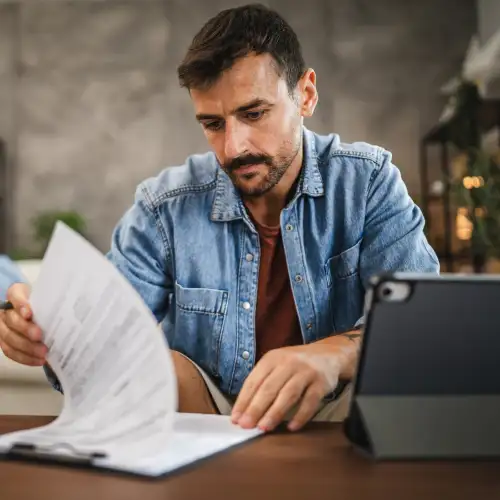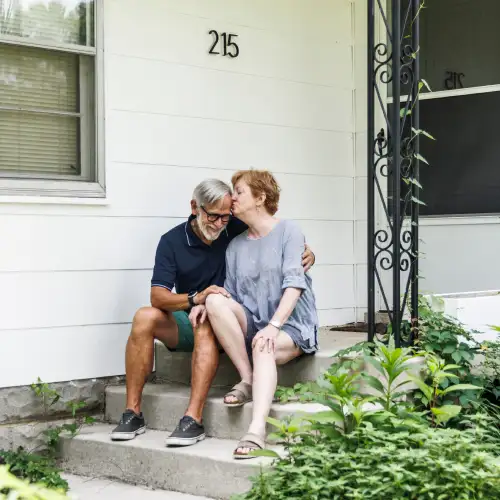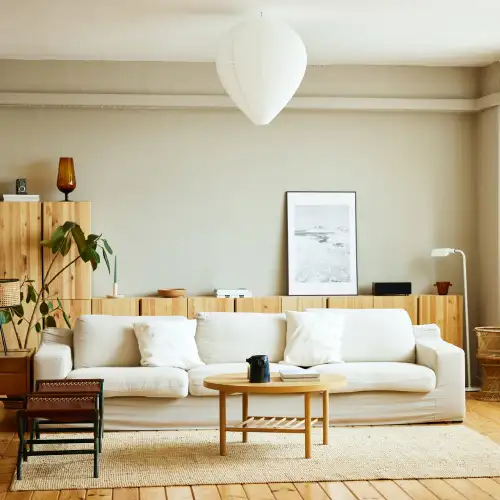Reasons to buy a second home
Each type of property not only serves a different purpose but also comes with distinct financing options, tax implications and insurance requirements. Today, we’re talking about buying a second home, so let’s dive into the details! There are plenty of reasons people buy second homes. Perhaps rentals are sparse in your favorite vacation spot. Or, maybe it’s a fixer-upper to sell down the line. Whatever’s driving your interest, here are some common reasons people opt for purchasing a second house.
A private vacation sanctuary
Say “ahhh.” A second residence can become your own personal retreat—a place to relax and recharge with family and friends (or solo if that’s your jam). Whether it’s in the mountains, lakeside or along the coastline, buying a second home can be your escape from weekday stresses or just a welcome change of scenery in your favorite second city.
Long-term wealth creation
Looking to build some generational wealth? All in all, real estate is considered a pretty stable long-term investment which is why buying a second home can be a valuable addition to your investment portfolio.
An equity enhancement
Investing in a second home is a nice way to build equity. Each mortgage payment you make increases your ownership stake while improvements and maintenance enhance the property's value. This increase in value builds up your equity, which in turn builds your overall wealth.
Tax breaks
Who doesn't love a good tax break? Chat with your tax advisor to determine whether there are tax benefits for your unique situation.
How to buy a second home
If you‘re an experienced homeowner, you’ve probably gleaned plenty of tips for buying a home the first time around, but buying a second home comes with its own set of nice-to-know tips and tricks.
Determine the purpose of the property
The purpose of the property will influence the types of home loan programs you're eligible for and the terms you might receive. Here’s how different purposes can affect your loan options:
- Vacation home: If you're buying a second home primarily for personal use as a vacation spot, you can typically apply for a conventional mortgage similar to your primary residence mortgage. Lenders will look for a good credit score, a stable income and a reasonable debt-to-income ratio. Keep in mind that the terms for a second home might be different from those for your primary residence. It's a good idea to have a conversation with your lender to clearly understand these differences.
- Investment property: When you're looking to buy a home that you plan to use as a rental or investment property, the loan requirements might be a bit different. Since you won't be living in the property yourself, lenders often view these situations as higher risk. As a result, they might ask for different terms to offset this risk. This could include a higher down payment, or a different interest rate compared to what you might get for a property where you plan to live.
- Mixed-use properties: If the property is mixed-use, meaning part of it is residential and part is commercial, you might need a specialized loan that can handle both aspects. These loans can be more complex and might come with different terms and eligibility requirements.
Consider all the costs of buying a second home
- Down payment: The down payment amount for a second home may differ from a primary residence, so remember to specify the use of the property when you chat with your mortgage lender, and they’ll be able to explain these differences to you.
- Tax implications: Speak to your tax or financial advisor whether owning a second home can offer any potential tax benefits.
- Insurance and maintenance: These costs can be higher for a second home, especially if it’s located in a high-risk area, like a flood zone or if it's vacant for parts of the year.
Decide how you’ll finance your second home
Financing a second home can involve some strategies that are less commonly used for purchasing a primary residence. Here are a few unique methods to consider when buying a second house:
- Home equity line of credit: If you have significant equity in your primary residence, you can take out a home equity line of credit (HELOC) to finance the purchase of a second home. This can be a convenient option because it potentially offers lower interest rates.
- Cash-out refinance: This involves refinancing your primary home for a higher amount than you owe and using the extra cash to purchase your second home. This can be a good strategy if you can secure a lower interest rate on your primary mortgage in the process.
- 401(k) loans: Some 401(k) plans allow you to borrow against your retirement savings to buy a second home, but always remember to consult your tax or financial advisor before you consider this as an option.
- IRA withdrawals: Your financial advisor can also guide you through the process of potentially using money from an IRA to help buy a second home. They can explain how making an early withdrawal might work and discuss whether it's a viable option for you.
- Seller financing: In some cases, the seller of the second home may be willing to finance the purchase for you. This can often bypass traditional lending requirements and may offer more flexible terms. This is more common in situations where the seller is having difficulty selling the property.
Each of these options comes with its own set of risks and benefits and it’s important to carefully consider your financial situation and long-term goals before deciding on a financing method.
How do I qualify for a second-home mortgage?
Lenders do have specific criteria they look at when qualifying someone for a second-home mortgage, which can differ from the criteria used for a first home. Here are some considerations:
- Credit score requirements: A higher credit score might be necessary to qualify for a second home which is a reflection of the increased risk associated with a non-primary residence.
- Debt-to-income ratio (DTI): Your DTI may need to be lower to qualify for a second-home mortgage. Lenders will carefully evaluate your existing debts and your income to ensure you can handle additional mortgage payments. This ratio is important in determining your ability to finance another home.
- Cash reserves: Otherwise known as mortgage reserves, lenders might require you to have more available cash to buy a second home. This means you may need to show that you have enough available assets to cover mortgage payments for several months on both your primary and second home, in case of lost income or other financial setbacks.
- Proof of income: Demonstrating stable and sufficient income is even more critical when applying for a second-home mortgage. You may need to provide additional documentation or proof of additional income sources.







